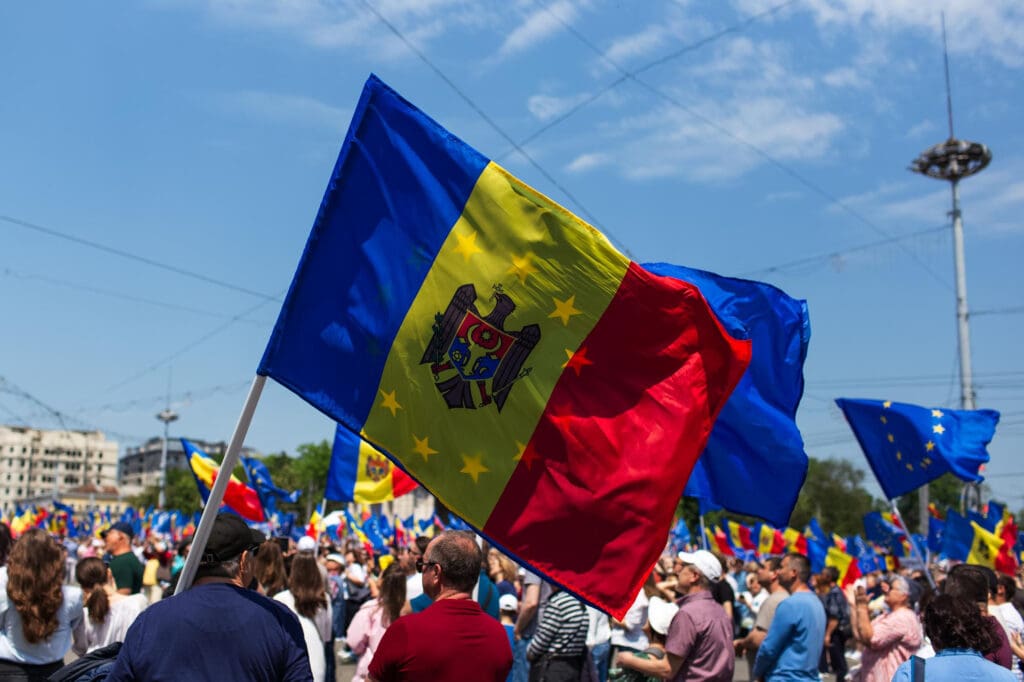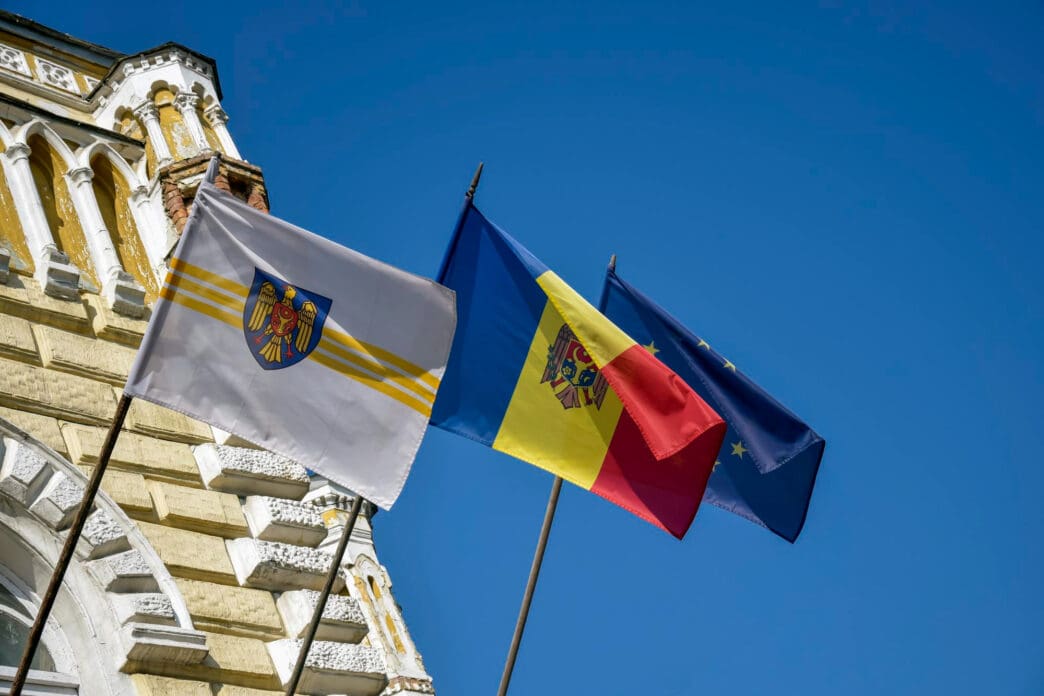Executive Summary
- Moldova’s upcoming parliamentary election is framed by the ruling party as an “existential choice” between securing the country’s path toward European Union integration and falling back under Russia’s influence.
- Moldovan authorities are actively combating extensive alleged Russian interference in the election, including vote-buying, cyberattacks, and plans to incite riots, leading to numerous detentions and international warnings from the UK and Poland.
- The pro-European Party of Action and Solidarity (PAS) campaigns on achieving EU membership by 2028, while their Russia-friendly opponents advocate for normalizing ties with Russia and promoting “permanent neutrality.”
The Story So Far
- Moldova is at a critical geopolitical crossroads, with the upcoming parliamentary election framed by the ruling pro-European party as an “existential choice” between securing its path toward European Union integration and falling back under Russia’s influence. This high-stakes vote is taking place amid widespread allegations and actions by Moldovan authorities to counter extensive Russian interference, including vote-buying, cyberattacks, and plans to incite riots, all aimed at destabilizing the country and influencing the outcome.
Why This Matters
- The upcoming Moldovan parliamentary election is poised to be a pivotal moment, with its outcome directly determining whether the country continues its path toward European Union integration or falls further under Russia’s influence, as alleged extensive Russian interference, including vote-buying, cyberattacks, and destabilization efforts, aims to shape the results. This critical vote could significantly impact the ruling pro-European party’s ability to maintain its majority and steer Moldova’s geopolitical trajectory.
Who Thinks What?
- Igor Grosu, leader of the ruling pro-European Party of Action and Solidarity (PAS), and Moldovan authorities frame the election as an “existential choice” between securing Moldova’s path toward European Union integration and falling back under Russia’s influence, accusing Russia of extensive interference, including vote-buying and cyberattacks, to destabilize the country.
- The Russia-friendly Patriotic Electoral Bloc (BEP) advocates for good relations with the EU while also seeking to “normalize” ties with Russia and promote “permanent neutrality.”
Igor Grosu, the leader of Moldova’s ruling pro-European Party of Action and Solidarity (PAS), has declared Sunday’s parliamentary election to be a critical juncture that will determine the country’s long-term future, either securing its path toward European Union integration or bringing it back under Russia’s influence. Speaking to The Associated Press on Thursday in Chisinau, Grosu emphasized that the vote is an existential choice between “peace,” which he equates with the EU, and “war,” which he associates with Russia, amid allegations of extensive Russian interference.
High Stakes and Accusations of Interference
The PAS, which has held a strong parliamentary majority since 2021, faces the risk of losing it in the election for a new 101-seat legislature. Grosu highlighted the absence of other viable pro-European alternatives on the ballot, contrasting this with the presence of several Russia-friendly options.
Moldovan Prime Minister Dorin Recean recently warned that Russia is allegedly spending hundreds of millions of euros to “take power in Chisinau” and influence the election outcome, describing it as a “siege on our country.” These alleged schemes include vote-buying, over 1,000 cyberattacks on government infrastructure, plans to incite riots, and a widespread disinformation campaign.

Moldova’s Response and International Support
In response to the alleged interference, Moldovan authorities have intensified their crackdown. This week, 74 individuals were detained during 250 raids as part of an investigation into an alleged Russia-backed plan to incite mass riots and destabilize the country. One arrest was made concerning the financing of a political party through cryptocurrencies, allegedly linked to Russia.
The United Kingdom’s Defense Ministry issued a statement on Thursday, asserting that “Russia is almost certainly conducting an extensive interference campaign” in Moldova ahead of the election. Grosu acknowledged Russia’s “enormous resources” but expressed belief in the “determination and mobilization spirit of Moldovans.”
Competing Visions for Moldova’s Future
The PAS has campaigned on a platform to continue Moldova’s path toward EU membership, aiming to sign an accession treaty by 2028, double incomes, modernize infrastructure, and combat corruption. Grosu stated that there is “no middle path, no middle option” in these “existential elections.”
A key opponent is the Russia-friendly Patriotic Electoral Bloc (BEP), a coalition of four political parties. The BEP has advocated for good relations with the EU while also seeking to “normalize” ties with Russia, promoting “permanent neutrality” and a “state that serves the people, not officials.”
Recent Developments and Extradition
Further underscoring the political tensions, Poland’s Ministry of Foreign Affairs issued a five-year ban on Natalia Vlah, a Moldovan politician, from entering Poland, Latvia, and Estonia for “helping the Russian Federation interfere in the preparations for the parliamentary elections.”
Additionally, Vladimir Plahotniuc, a Moldovan oligarch and fugitive implicated in a $1 billion bank fraud who fled Moldova in 2019, was extradited from Greece on Thursday after being detained in July.
Defining Moldova’s Trajectory
The upcoming election is framed by the ruling party as a decisive moment that will shape Moldova’s geopolitical alignment and internal development for years to come. The outcome will reflect the efficacy of the pro-EU agenda against significant alleged external pressures and domestic political opposition.








